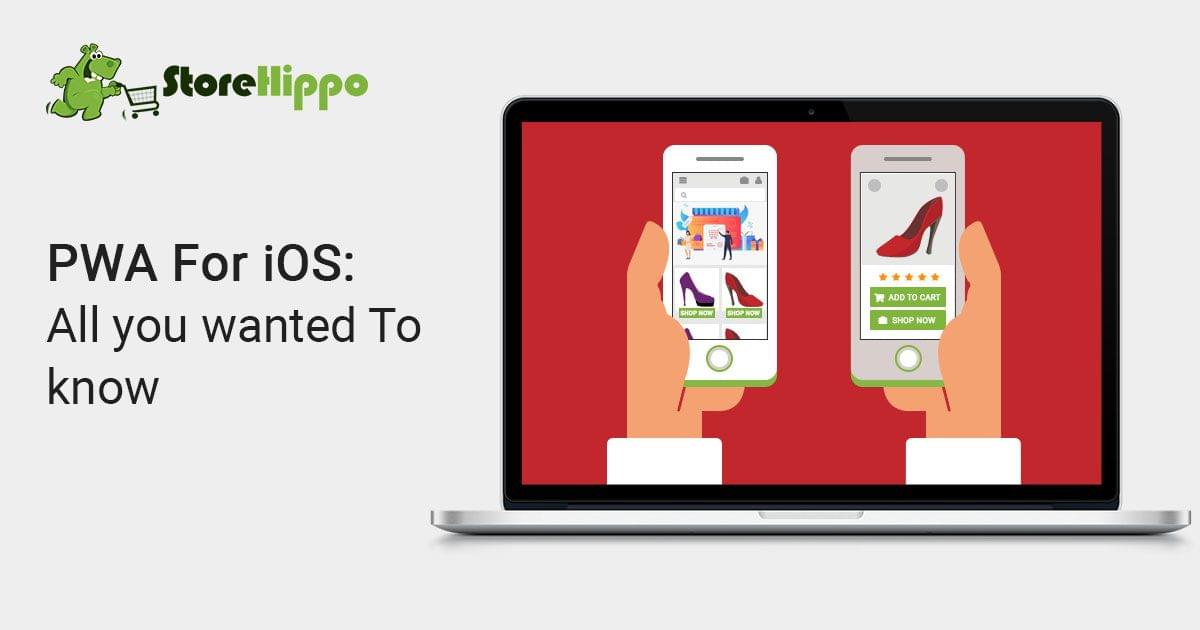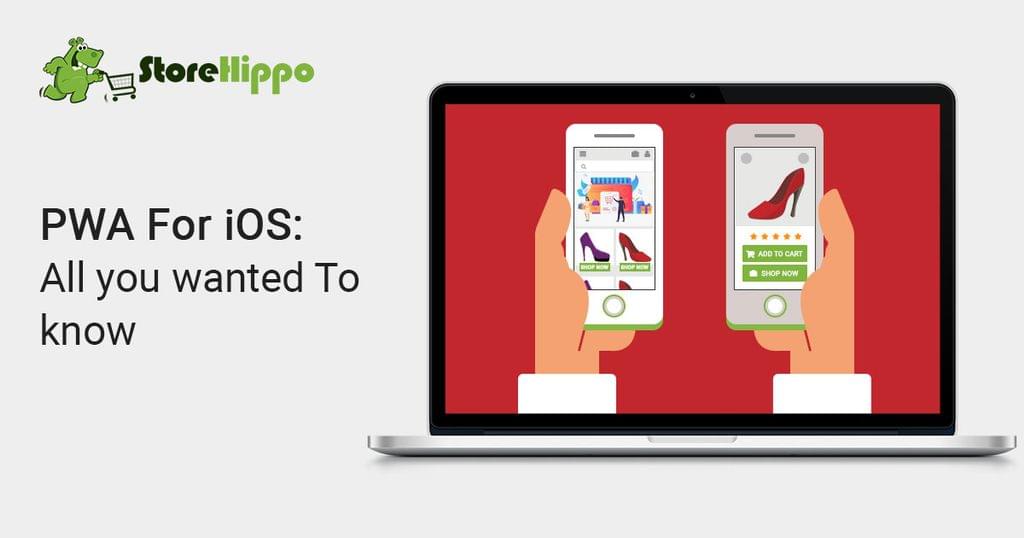It all started with version 11.3
In March 2018, Apple came out with iOS update version 11.3 which had significant features to enable support of PWA on your Apple devices. This update empowered Apple to layout the basic and a very strong foundation for progressive web apps for the future.
This came as a piece of welcome news for both business owners and web developers. Business owners can use progressive web apps as an effective tool to engage with their consumer base. While looking at the developer’s point of view, overall app development just becomes easier as there is no need to learn any platform-specific languages. It was about time Apple users experienced the lightning-fast and rapid functioning of PWA.
At first, it wasn’t perfect and as smooth as browsers on Chrome but still, it was something.
Table of Contents
Apple ups the ante with iOS 12.2 Beta
Although 11.3 was a good starting platform for progressive web apps on iOS. With the release of iOS 12.2 Beta, almost every issue was addressed and fixed. 12.2 was released exactly a year after 11.3 came out and added new functionalities within PWA to enhance the experience of the user. Some newly added and notable functionalities are as follows:
- progressive web apps on iOS would now support navigation via gestures.
- Web sharing of the PWA (Only via HTTPS)
- Improved app cycle and better management of external links.
- Fetch requests could be aborted.
- Preload, Storage Access, Service Worker and the Cache Storage APIs couldn’t be disabled anymore.
- In-App browsers meant they don’t have to summon Safari repeatedly.
About service workers and PWA
If you are on this page then there is a very good chance you know what a progressive web application is and how it functions. But just to elaborate on your purview of the same, the highlight of version 11.3 update was the addition of service workers. Service Workers are the backbone of progressive web apps.
A service worker is a JavaScript file that operates independently from the main browser. It helps intercept network requests, with caching and managing its resources and popping up those push notifications for constant consumer engagement.
Since these service workers are not dependent on the main thread, they work separately from the main application.
Some useful features of PWA
The service workers help progressive web apps with a multitude of their features. Some features which will surely get your attention are as follows:
- Device-Responsive and compatible with the current browsers compatibility - Such applications are developed to showcase 'progressive' experience a user can get by using it. progressive web apps can run in any browser and are not device-specific, despite all the specs involved.
- Network-Independent - progressive web apps can function offline and on sparse networks as well.
- UI is very much like a native app's - Experience while using a PWA is just like using a native app which is installed on your device.
- They update themselves - With the help of service workers, progressive web apps can update themselves in the background without bothering the user.
- progressive web apps are safer - progressive web apps can only be accessed and shared via HTTPS, restricting the unauthorized user from getting a peek at your data.
- Can be easily installed - Progressive web apps can be easily shared using a URL. No tedious installation needed as you do with a native app. All you have to do is visit the website and add a shortcut to your home screen.
PWA comes with many Business-Benefits
A lot of features of progressive web apps are interconnected and dependent on each other’s functioning and hence making it a very versatile technology.
1. Relatively lower cost of development
Development of progressive web apps generally involves web stack. StoreHippo is developed using the cutting edge MEAN Stack, which gives your website all kinds of flexibility. Development of progressive web apps cost less money and take less time.
With StoreHippo's mobile-ready platform, you don't have to worry about developing separate apps for different OS. progressive web apps can run on both Android and iOS.
2. Easy 'Frictionless' installation
Discoverability is one of the core features of a progressive web apps. Since a PWA is just one big webpage with extensions, it enhances its competitiveness over native apps. SEO support is the primary differentiator, indexing progressive web apps better on google than native apps.
Users these days don't bother with the cumbersome installation of mobile apps. In the US, it was noticed that a business loses about 20% of users with each additional step during installation.
Avoid the hassle and jumping through hoops to get your application approved by Apple's App Store. No need to make your customer go through the app store and manage storage space. Just visit the website, add a shortcut to your device's home screen, and access the site from there.
3. Say goodbye to the bothersome manual updates
When you install a native app, it demands periodic updates to stay functional in a smooth manner. That means extra storage space for just that one app.
But with StoreHippo, your online store's progressive web apps can avoid all that cumbersome installation steps as well as constant manual updates. Provide your users with streamlined and up to date e-commerce experience. Avoid significant problems like software fragmentation and risks like losing your user's data in case the regular update of the app is interrupted.
4. Improved and continuous consumer engagement
About 80% of users in the US, move the shortcut to apps on their home screens for convenience. (Source: Same as above). And this ability makes progressive web apps the most competitive type of web applications.
Not only that but the other factors involved involving the user's decisions also come into play because of this. The decision to use an app can depend on its usage frequency (61%), ease of access (54%), and speed of access (49%). Hence there are higher chances of visibility distribution if your brand is using a PWA. Push notifications are also inherent characteristics of progressive web apps, but with iOS, it's yet to materialise.
StoreHippo has always been mobile-ready
Online stores powered by StoreHippo are hybrid mobile apps which run seamlessly on all devices, i.e. mobiles as well as desktops. Using progressive web apps, StoreHippo builds e-commerce websites that look, feel and work as mobile apps. Progressive web apps improve user experience and increase conversions.
Use of the latest trends like MEAN Stack has helped a lot of our customers to reap the following benefits of progressive web apps.
- PWA bridges the gap between web applications and native apps by giving your users an app-like experience.
- With SEO support, you can help your web app index higher on Google.
- Enhanced capabilities of HTML5 make progressive web apps up to 4X faster than mobile-responsive or mobile sites. By loading cached content instantly, it provides for faster site speed.
- Cross-device compatibility saves you the time and cost of mobile app development.
- You can take your mobile PWA live just like that without worrying about approval from the App store or Google play store.
- Give your users an app-like experience without even making them download one. Help them save their storage space.
Apple is encouraging progressive web apps for iOS13
Apple's recent actions ever since the launch of iOS13 sent a strong message hinting businesses to consider using progressive web apps instead of native apps for iOS 13.
These actions include exterminating useless existing apps from the app store. With iOS 13, they are also providing support for service workers and tweaking them to fit in Safari's specification.
They have been actively unloading apps from Apple's App Store which have used app generation or template-based services. They have even updated their guidelines which states the same policy under section 4.2.6, which clearly states "Apps created from a commercialized template or app generation service will be rejected."
They are rejecting native apps now
As mentioned above, Apple’s App Store’s new guideline clearly states that they are stepping on the quality control of their app store by deleting apps which are obsolete, worthless, duplicates, knock-offs or provide no lasting entertainment value at all.
With stricter rules, Apple has become more demanding in their criteria to approve a native app to be published in the app store.
With progressive web apps, you can simply avoid these problems.
Conclusion
All this time, Apple had been reluctant to adopt standard functionalities such as service workers for quite some time. iOS 11.3 was a good start, and with 12.2 Beta and 13, they have made up for lack thereof.
For a long time, consumers were comfortable with the native apps and weren't ready to consider such new avenues. With the rise of PWA, smaller companies now have a chance to engage with their consumers more cost-effectively.
Sign up with StoreHippo and awe the iOS segment of your consumer base with the real power of PWA.





















Leave A Comment